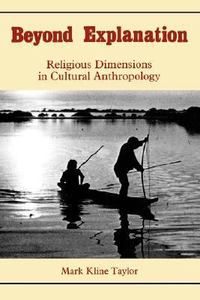
“Taylor’s . . . central argument [that the discourse and impulses of cultural anthropology have a religious dimension] are well made, and the discussion of his two exemplars (Lévi-Strauss and Marvin Harris) is instructive, though social scientists remain agnostic as to its final destination. Taylor generates novel insights linking the writings of these anthropologists to the implicit order of presuppositions that underlies them – a notable instance being the place of Rousseau’s notion of pitie in Levi-Strauss’s vison.” Jean Comaroff, The University of Chicago, American Anthropologist
“One of the best things about Taylor’s book is that in order to reach his conclusion, he presents masterful, detailed summaries of Harris’s and Lévi-Strauss’s work. . . . I suspect both men would acknowledge the integrity and insight of Taylor’s account of their motivations and concepts.” John P. Crossley, The Christian Century
“ Taylor is equally at home in the literature of both disciplines; he demonstrates methodological sophistication, unusual clarity of argument and expression, and impressive constructive talents together with the facility to carefully nuanced, well-balanced judgments. . . .His book affords a model for evaluating religious dimensions in other social and human sciences (Psychology, sociology, history, literary criticism, linguistics, philosophy), and perhaps even the natural sciences. Nothing could be more crucial for the survival of theology in the postmodern world.” Peter C. Hodgson, Vanderbilt University
Beyond Explanation, Taylor’s first published book, did not treat liberating spirit as the central notion it became for his later theoretical work as theologian and activist. Nevertheless, a materialist understanding of liberatory spirit, as an interplay of antagonism, the arts and social movements, is evident in Taylor’s treatment of two controversial, influential, secular anthropologists, Claude Lévi-Strauss (College de France) and Marvin Harris (Columbia University, and the University of Florida).